Water in the human organism
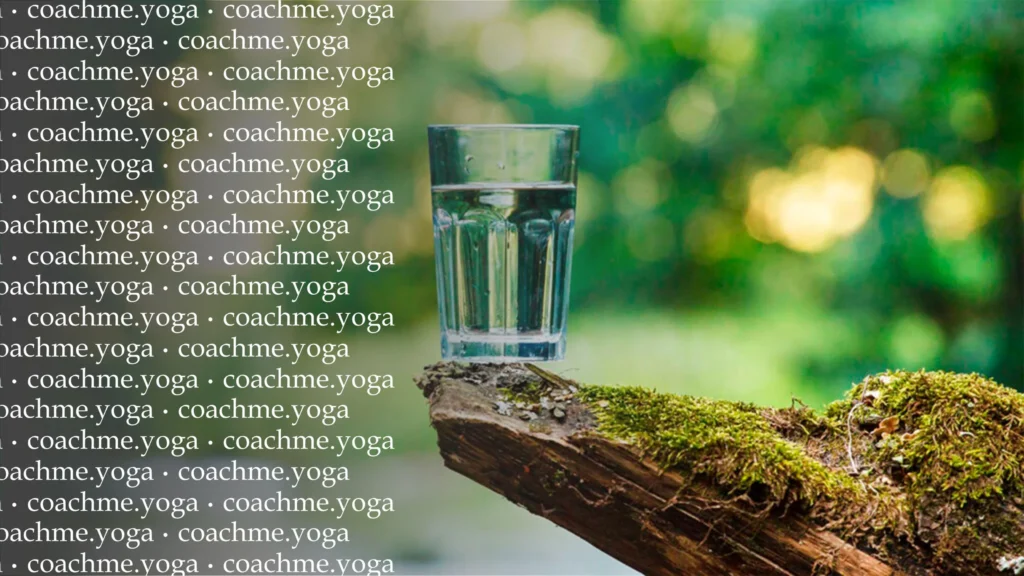
Perhaps, there is no sense to spread too much on the topic that water is the basis of our vital activity. It is enough just to remind that about 2/3 of human body weight consists of water. And, moreover, it is important to note that the younger we are, the more water we have – in infants it is 75% of the total body weight, in adolescents 65%, in adults 60% and in the elderly 55%. In other words, by old age, we are like plants, literally “drying out” – the closer we get to death, the less water we have.
It makes sense to assume that all this water is in us not just for nothing, but in order to fulfill some function. And indeed, if we look deeper into this question, we will realize that it participates in almost all chemical and physiological processes of the body. To be more correct we should even say that this many processes of our organism take place only due to the presence of the necessary amount of liquid. For example, in a liquid water environment, digestion and assimilation of nutrients takes place at all levels, starting with the process of digestion in the stomach, continuing with the transportation of substances to all tissues, and ending with metabolism in the cells themselves. After the food has charged us with life-giving energy, as well as vitamins and minerals, with the help of water all unnecessary metabolic products are removed. First of all, water helps dissolve waste particles and facilitates their transfer to the digestive tract (through the lymphatic system, for example). Also, toxins and waste products leave our body with fluid through sweating and urination. In addition, water maintains body temperature stability, is indispensable for blood circulation, lubricates joints, moistens oxygen during breathing, nourishes and rejuvenates the skin, ensures immune system function and participates in many other vital processes of our body.
If a person lose 6%-8% of body weight through water deficiency, metabolism gets disturbed, oxidation processes slow down, temperature rises, pulse rate increases, muscles get flabby. At 10% water loss, irreversible pathologies begin: eyeballs fall in, vision becomes impaired, throat cramps begin, the mind becomes cloudy. Dehydration of 15%-25% is fatal.
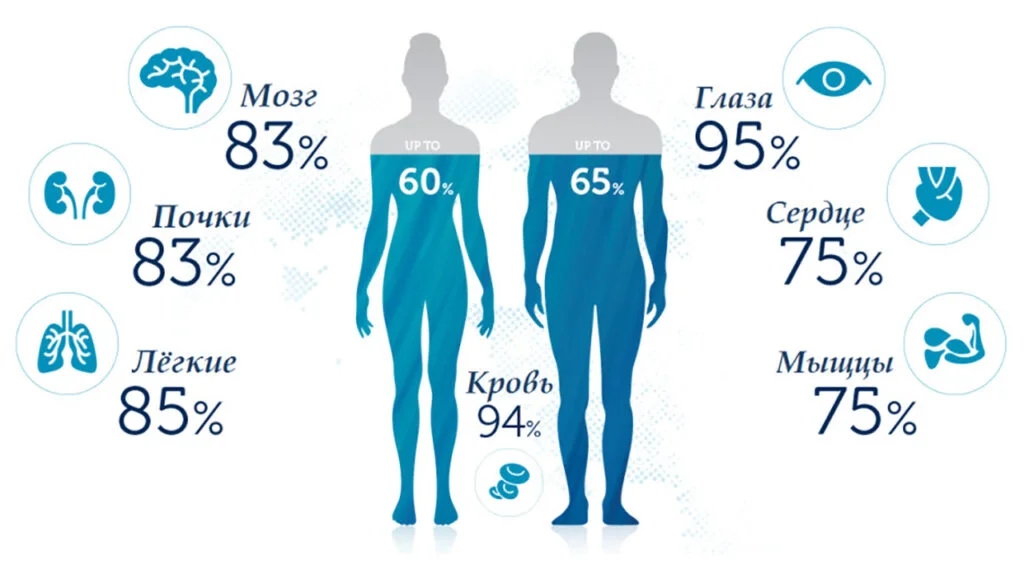
Fortunately, serious fluid loss in the average urban dweller is extremely rare. However, severe but persistent dehydration can be very common, and it is the cause of serious health problems. In this case, the body slags, which leads to constipation, kidney and gallbladder stones, bad breath. Heart and lung function gets disturbed, blood pressure rises, dry cough occurs. Hair and nails become brittle, skin dries out, back and joint pains appear. In addition, the lack of water, oddly enough, can lead to an increase in body weight due to the accumulation of fat. This is because moderate dehydration leads to a decrease in metabolic processes. In turn, the resulting stress in the body affects the nervous system and mental state of a person: concentration, memory, headaches and general fatigue worsen.
That is, the list of problems caused by a small but constant lack of fluid in the body, is quite broad and at first glance by the nature of its occurrence is not obvious. It would seem that simply by satisfying the daily need for fluid, you could avoid a number of ailments, without the use of any medications. But here lies the main problem of this question – and what is the “daily fluid intake”? How much water does our body really need per day? In fact, there is a lot of controversy around this topic – some argue one, and others – another. Often, both sides bring quite well-reasoned rhetoric, referring to any reliable sources. It is quite difficult to make sense of this ton of information.
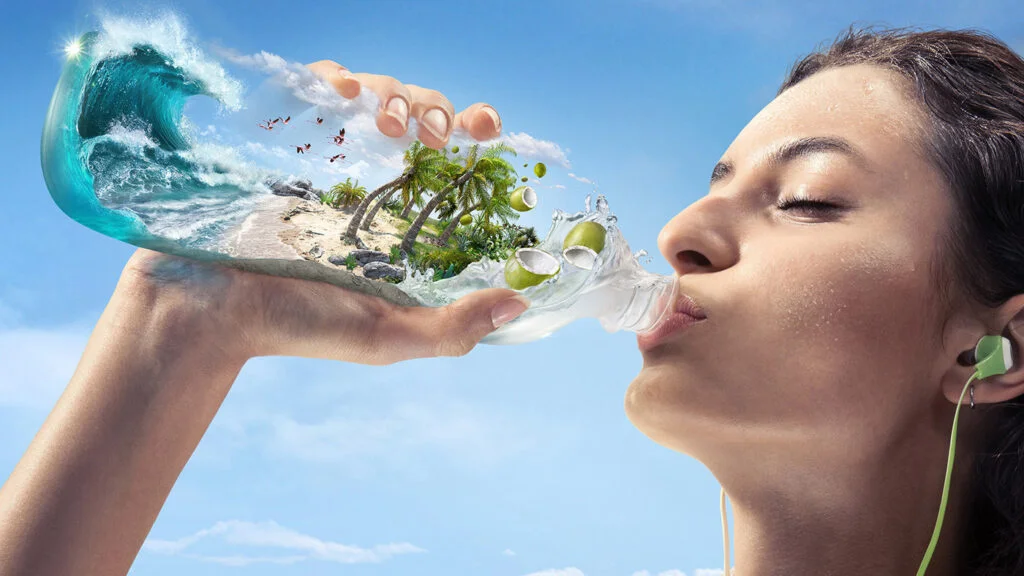
Most likely, initially the norm of fluid intake per day was formed from calculations of its daily loss. It turns out that on average during the day and night a person excretes about 2-2.5 liters of water through sweat, feces, urine and breath (vapor). Apparently, based on these calculations, in 1945 the American Commission on Nutrition and published recommendations, which stated that an adult needs about 2.5 liters of water per day. Later, almost 30 years later in her best-selling book “Nutrition for Good Health”, the famous nutritionist Margaret McWilliams again recommended drinking 6-8 glasses of water a day. However, both sources also noted that most of the fluid humans consume is found in food as well. For some strange reason, the public mostly remembered the recommendation of 2 liters of water a day, while the supplements were left out. Perhaps the reason for this is banal inattention, or maybe it was economical and profitable for someone (imagine if everyone buys 2.5 liters of mineral water a day), but the rule of “two liters” is now firmly rooted in society.
However, if you think about it logically, we do get quite a lot of liquid with our food. For example, vegetables on average contain 93% of water, fruits 86%, meat 68%, bread, cheese, flour, nuts less than 50%. In addition, usually during the day we also eat various soups, drink hot and soft drinks, which in turn contributes to the total amount of fluid intake. That is, partially we do replenish liquid reserves with food, the only question is what kind of food we eat (how much it is saturated with water) and how much of the necessary 2.5 liters of liquid per day. Accordingly, supplementing the difference with water in pure form, we get the necessary water-salt balance. And, of course, it is already much less than roughly speaking, the same three-liter can of water per day.
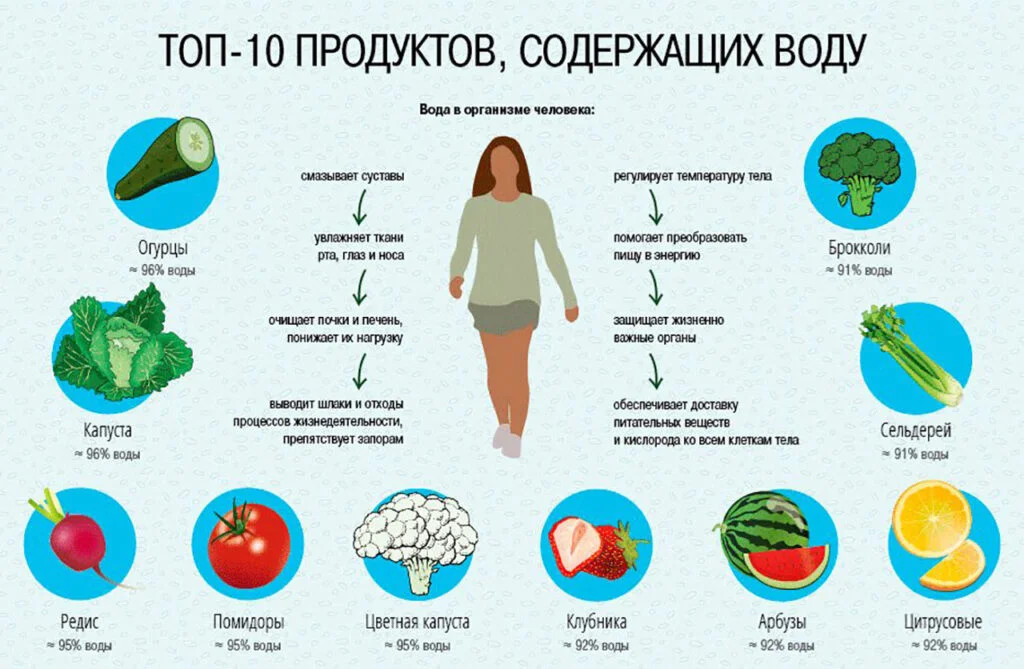
Personally, I do not make complex daily calculations in this regard, but try to focus, firstly, on my own sense of thirst, secondly, on the intensity of my physical activity, and thirdly, I have introduced mandatory water consumption at certain times of the day. All of this combined, according to my gut feeling and health status, qualitatively and reasonably minimizes any risks, both in terms of dehydration and hyperhydration (excessive fluid intake). What does this look like in practice?
First of all, I make sure to drink water in the morning after waking up (or after morning practice). In the morning, water helps me to replenish the losses that occurred during the night (due to sweating, digestion, urine production, breathing, etc.). By adding lemon to the water, I help to gently kick-start the digestive system, preparing it for the upcoming breakfast. Lemon is good for nourishing the body with the necessary set of vitamins, macro-, micro-nutrients and slightly invigorating, which in the morning will not be superfluous at all. Also, I make sure to drink a small glass of water (100-150 ml) before going to bed (without lemon), about 30-40 minutes beforehand. Since I finish the last meal long before bedtime (usually 5-6 hours), water washes and cleanses the walls of the stomach before bedtime, dulls the feeling of hunger and replenishes the loss of fluid that occurred during this period. For the third time, I make sure to drink water after any intense workout. This is also good for replenishing the loss that has occurred. All other access to clean water is purely at will, which comes from the feeling of thirst and varies with the time of year, my current life schedule, nutrition, and location (i.e. the surrounding climate).
The ideal water for consumption is, of course, spring water (if you live in a more or less clean area), because even on a vibrational level it is “alive”, not to mention the content of the necessary “Mendeleev table”. If there are no such options available, I use ordinary water from under the filter, warm enough (30-40 degrees Celsius) – so it does not cause stress to my stomach and passes more quickly down into the intestines.
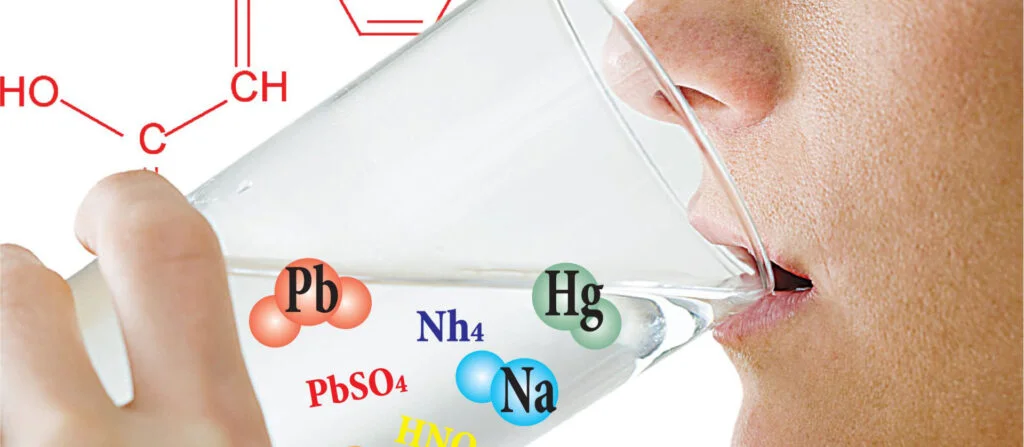
Periodically, your “water diet” can also be diversified with mineral water, but not that it completely replaces the usual one. Despite the fact that mineral water is considered healthier and useful, a number of experts for their part have objections. “Some varieties are very high in sodium, and this can be dangerous – especially for those who suffer from hypertension” states nutritionist Mia Sin. Candidate of Medical Sciences, gastroenterologist at GMS Clinic, Eugenia Mayevskaya, in turn, adds that: “Water with high mineralization can be harmful to patients who have problems with the gallbladder or pancreas – it has a stimulating effect, completely unnecessary in this case.” “To replenish the water balance, ordinary clean drinking water is quite enough,” concludes Larisa Bavykina, endocrinologist and nutritionist at the Atlas Medical Center.
Like any other good, but in large quantities, excessive consumption of water can also be very harmful to human health, because it will greatly burden the kidneys and heart, which can provoke various diseases of these systems. Therefore, a reasonable sense of proportion should be observed and in this seemingly completely harmless matter.





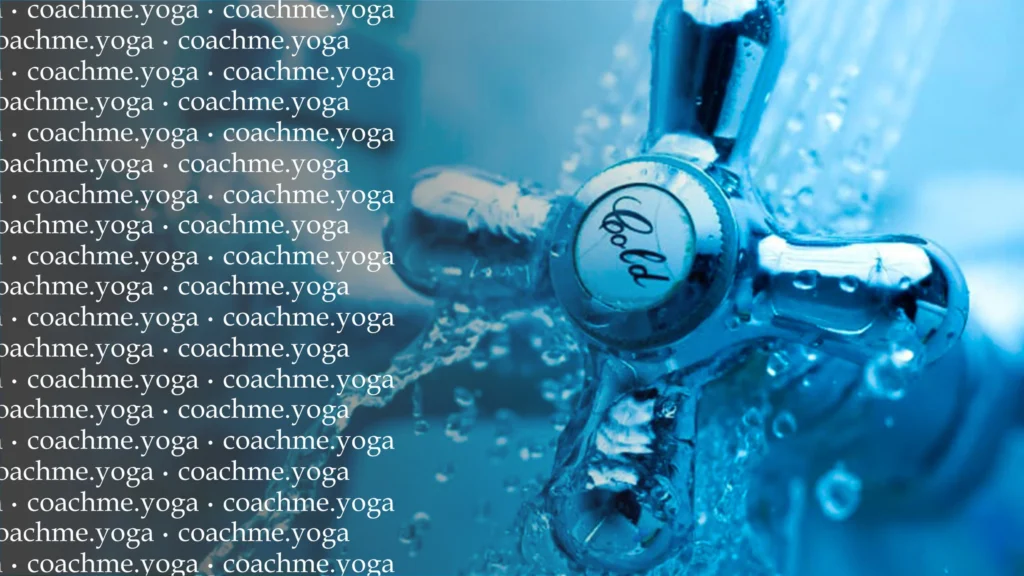
Responses